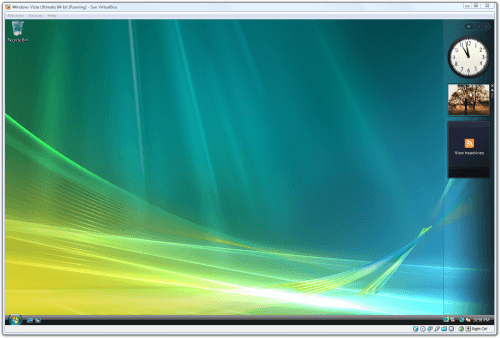Virtualbox Additions For Mac Guest




- 1 First Steps
- 1.4 Supported Host Operating Systems
- 1.8 Running Your Virtual Machine
- 1.10 Snapshots
- 1.14 Importing and Exporting Virtual Machines
- 1.15 Integrating with Oracle Cloud Infrastructure
- 1.18 Soft Keyboard
- 2 Installation Details
- 2.1 Installing on Windows Hosts
- 2.2 Installing on Mac OS X Hosts
- 2.3 Installing on Linux Hosts
- 2.4 Installing on Oracle Solaris Hosts
- 3 Configuring Virtual Machines
- 3.1 Supported Guest Operating Systems
- 3.2 Unattended Guest Installation
- 3.4 General Settings
- 3.5 System Settings
- 3.6 Display Settings
- 3.11 USB Support
- 3.14 Alternative Firmware (EFI)
- 4 Guest Additions
- 4.2 Installing and Maintaining Guest Additions
- 4.3 Shared Folders
- 4.4 Drag and Drop
- 4.5 Hardware-Accelerated Graphics
- 4.7 Guest Properties
- 4.8 Guest Control File Manager
- 4.10 Memory Overcommitment
- 4.11 Controlling Virtual Monitor Topology
- 5 Virtual Storage
- 5.11 vboximg-mount: A Utility for FUSE Mounting a Virtual Disk Image
- 6 Virtual Networking
- 6.3 Network Address Translation (NAT)
- 7 VBoxManage
- 7.8 VBoxManage modifyvm
- 7.10 VBoxManage import
- 7.11 VBoxManage export
- 7.37 VBoxManage unattended
- 7.38 VBoxManage snapshot
- 7.39 VBoxManage clonevm
- 7.40 VBoxManage sharedfolder
- 7.41 VBoxManage extpack
- 7.42 VBoxManage dhcpserver
- 7.43 VBoxManage debugvm
- 7.44 VBoxManage cloudprofile
- 7.45 VBoxManage cloud
- 7.46 VBoxManage signova
- 7.47 VBoxManage updatecheck
- 7.48 vboximg-mount

Virtualbox Mac Os Guest
VirtualBox is a general-purpose full virtualizer for x86 hardware, targeted at server, desktop and embedded use.For a thorough introduction to virtualization and VirtualBox. How you get that file to the guest can depend on the OS of the guest - see below. After installing Guest Additions, on some, older guests you might need to restart the guest. For recent guest OSs. In the guest virtual machine, choose Devices - Install Guest Additions from the menubar of VirtualBox. VirtualBox will look for the needed file.